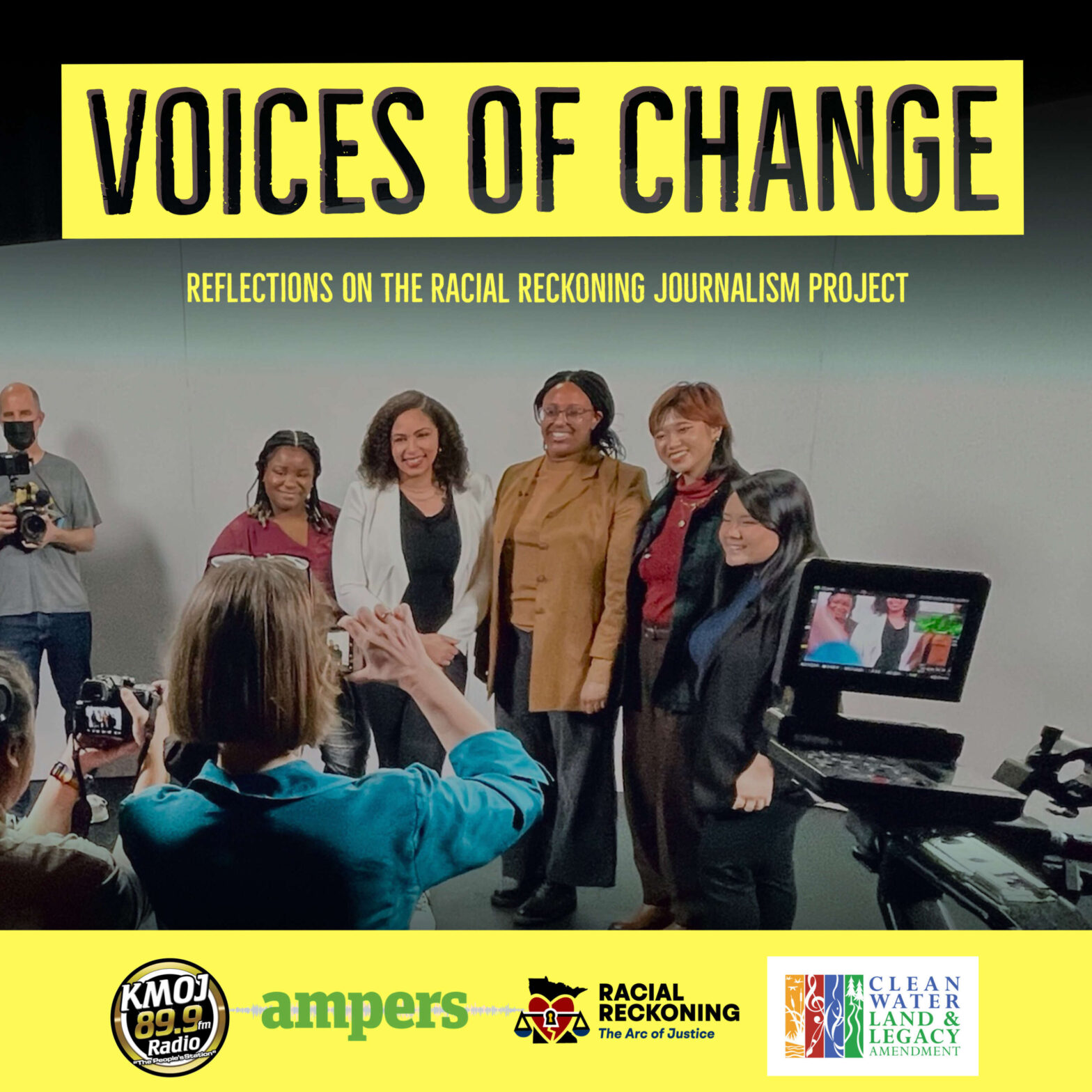What happens when you bring together a group of young women of color to cover one of the most racially charged trials in our country’s history? Really. Good. Journalism.
In this special, we’re looking back at Racial Reckoning: The Arc of Justice, a journalism project of KMOJ Radio in Minneapolis, Ampers Diverse Radio for Minnesota’s Communities and the Minnesota Humanities Center. You’ll meet the young reporters who made the project a success and hear their thoughts on the future of journalism.
In May of 2020 the horrifying video of Minneapolis police officer Derek Chauvin kneeling on George Floyd’s neck rocketed around the world, inciting anger and outrage. KMOJ Radio’s station manager, Freddie Bell, could hear the deep pain and anger of listeners calling into his morning show. His community was in crisis. Demonstrators flooded the streets crying for justice and destructive fires lit up the night skies – but KMOJ didn’t have the resources needed to report on what was happening right in their community. Bell knew he had to change that.
He took his idea to Ampers, a non-profit organization that provides support and programming to 18 public radio stations across the state. With help from the Minnesota Center for the Humanities and several other generous funders, they created “Racial Reckoning: The Arc of Justice.” The goal of the ten month project: to hire young reporters from diverse backgrounds to cover the murder trial of Derek Chauvin and the many racial and social justice issues unearthed in the wake of George Floyd’s killing in May of 2020. Daily updates would air on KMOJ, other Ampers radio stations and across social media platforms.
Ampers assembled this temporary newsroom, hiring a team of five young freelance reporters: Samantha Hoanglong, Chioma Uwagwu, Tiffany Bui, Safiya Mohamed and Feven Gerezgiher. It also brought on board some seasoned professionals to lead the project, including Georgia Fort and Marianne Combs. The Racial Reckoning newsroom quickly got up and running and began filing daily two-minute radio reports. By the end of the project, more than 3-dozen radio stations nationwide aired elements of Racial Reckoning, with some reports reaching more than a million people. The project also included a weekly podcast called Bearing Witness, and weekly updates translated into Spanish, Hmong and Somali in order to reach Minnesota’s largest immigrant communities.
Voices of Change is a production of Ampers, Diverse Radio for Minnesota’s Communities, with support from the Minnesota Arts and Cultural Heritage Fund

